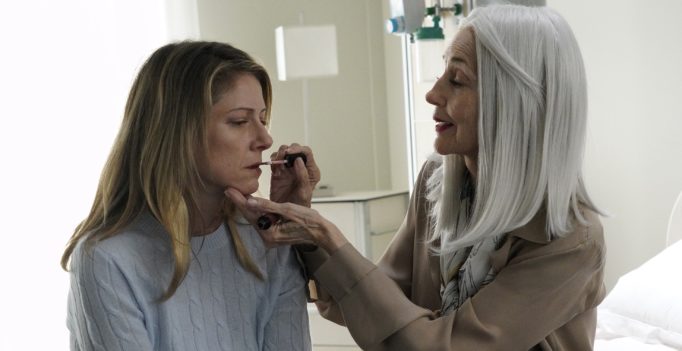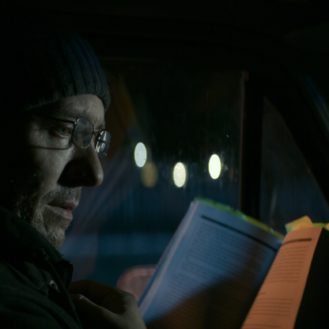Written and directed by Stella Hopkins, Elyse is an uninventive and poorly-written depiction of mental illness. To watch Anthony Hopkins, Stella Hopkins’ husband and arguably one of the greatest actors of our time, perform in a film this tedious and inexpert is a truly baffling experience. Mental illness is a complex and nuanced theme, but Elyse’s exploration of a wealthy but unsatisfied white woman’s inner world is obvious and riddled with clichés.
During the opening seconds of the film, Elyse (Lisa Pepper) walks through a room of concrete and glass: a sleek, ultra-modern home void of warmth or charm. The house is shot in black-and-white, a rather on-the-nose metaphor for Elyse’s life. Though she has the perfect house and family, she feels trapped and unfulfilled. She is frequently jealous, possessive, and unpredictable. Realizing that she needs help, Elyse seeks the help of a psychiatrist (Anthony Hopkins) who guides her out of what turns out to be a catatonic state.
Elyse is one-note to the extreme: constantly lashing out at the around her and refusing to take responsibility for her treatment of others. Lisa Pepper deserves some credit for her performance which is uncomfortable in a way that is very fitting with her character’s psychological state. However, Elyse’s illness is used to excuse her behavior. The film flinches when confronted with the ultimately tragic outcome of her actions, a development that is used as a plot twist rather than an opportunity to fully examine larger questions about how families cope with the ugly and painful things that those with mental illnesses can do to themselves and others.
While the limited, black-and-white colour palette used as a metaphor for Elyse’s inner life is interesting, the reveal in the second act showing that she is now in a hospital in a catatonic state feels half-baked. Elyse can’t seem to decide if it is entirely in its’ protagonist’s head; the result is highly disorienting – and not in a good way. It may seem like a small gripe to have with a film that is so clearly the work of an inexperienced filmmaker, but I couldn’t get over the fact that there are scenes in this film that Elyse isn’t in. There are private moments with Elyse’s husband and Carmen, the housekeeper’s daughter. There is a conversation with Anthony Hopkins’ Dr. Lewis and Elyse’s family. These moments draw the viewer out of Elyse’s perspective and imply the existence of an objective reality. Most of the film’s flaws would be strengths if we could read the story as Elyse’s delusion; it would still be a predictable and cliché premise, but it would at least make some kind of logical sense. However, the scenes without Elyse make it impossible to buy into this more forgiving reading.
Stella Hopkins is Columbian, so I will admit it’s possible that the film was drawing upon a cinematic tradition that I am not versed in. That said, I kept waiting for a pattern to emerge from the chaos, some missing ingredient that would turn Elyse from a bizarre and cringey drama by an amateur filmmaker with lofty industry connections into something smart, innovative, and insightful – or at least something interesting. I kept waiting for the pieces to fall into place but, for me, Elyse remained simplistic, awkward, and poorly-conceived from beginning to end.
**********
Do You Tweet? Follow These Tweeple:
Shannon Page: @ShannonEvePage





Be the first to comment